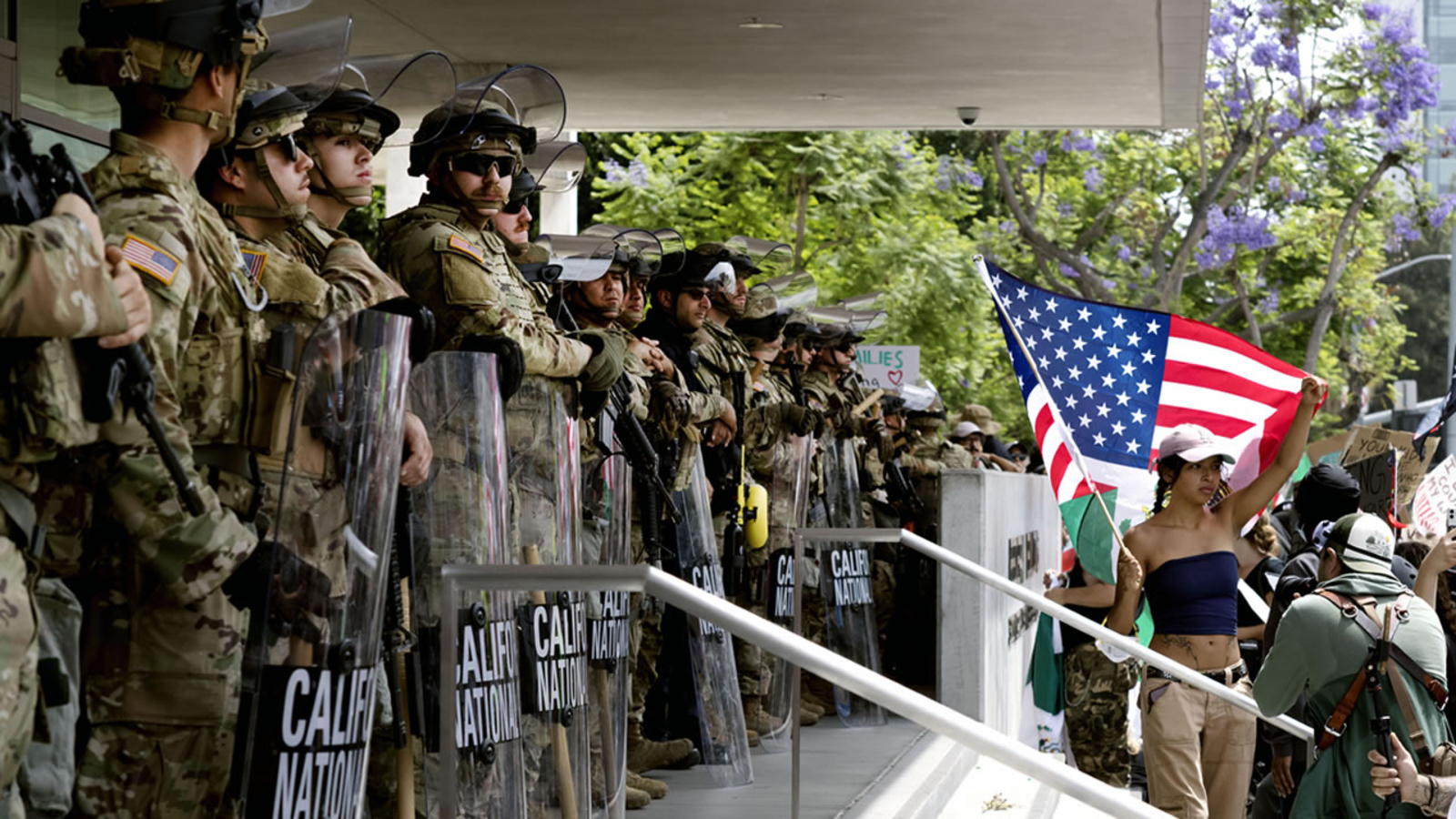California lawyers called Major General Scott Sherman to the stand. He is currently the Deputy Commanding General for the National Guard U.S. Army North (5th Army).
Sherman deployed to LA on June 9.
California lawyers asked Sherman about his primary responsibilities, which he said included preparing and training the troops that Trump and Hegseth sent to LA. Sherman says that also included ensuring troops were compliant with the law, including Posse Comitatus Act.
The lawyer asked Maj. Gen. Sherman about the deployment and communications with the Dept. of Defense about the protests.
California: Did you ever hear there was a rebellion?
Sherman: Not a rebellion, but that there were people preventing federal officials and law enforcement from doing their job and threatening federal buildings.
California: But no one from the Department of Defense ever used the term rebellion, correct?
Sherman: Yes, correct.
The lawyer then showed Sherman several photos and videos from marijuana farm raids. One video shows protesters in Camarillo and a group of soldiers, which Sherman identified as the LA Guard troops. He said they appear to be performing “traffic control.” Sherman was not in command of nor present in this particular operation.
During the DOJ cross-examination of Sherman, photos were shown of Guard troops behind LA County Sheriff LEOs. At the direction of DOJ questioning, Sherman said sheriff deputies established the traffic control “blocking position and our soldiers were strictly behind them in case of threat,” and that the Guard wasn’t inherently leading the traffic control.
There was an interesting Q&A about when troops can legally act if they feel threatened. Judge Breyer asked Sherman if troops can operate on hypothetical but nonexistent threats. Sherman said yes, based on risk assessment.
Breyer tried to get at the political nature of these protests, asking Sherman if the Guard would have same response to an IRS protest, for example, just because a threat could pop up.
Sherman explained military leaders thought certain threats would arise due to the nature of these protests, and that was a factor in decision making for deploying troops to Southern California.
Sherman was excused, but it sounds like he might be called to the witness stand again Tuesday.
